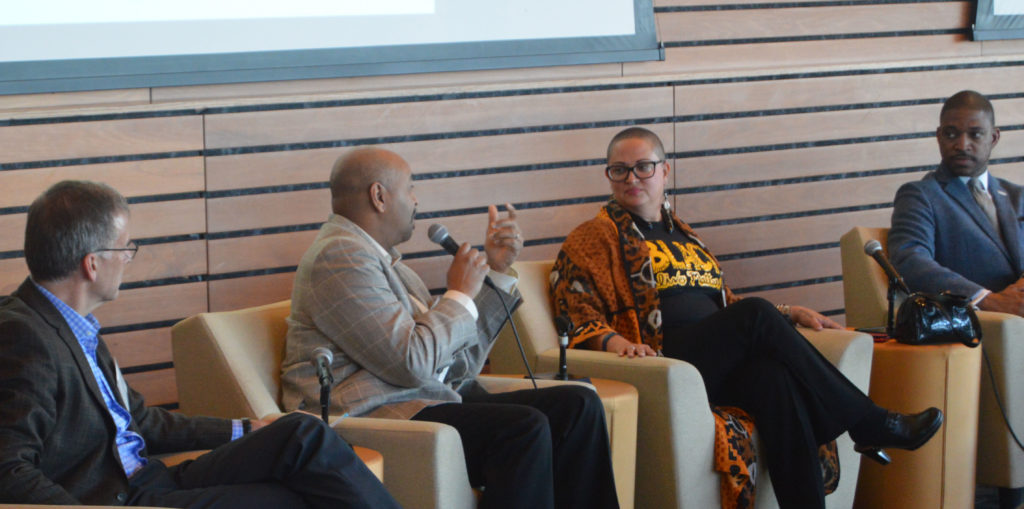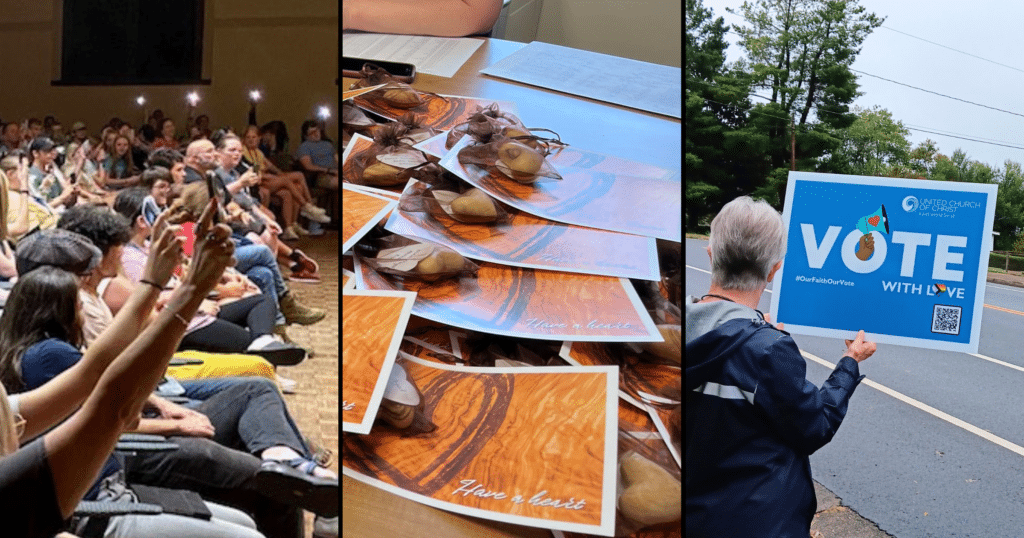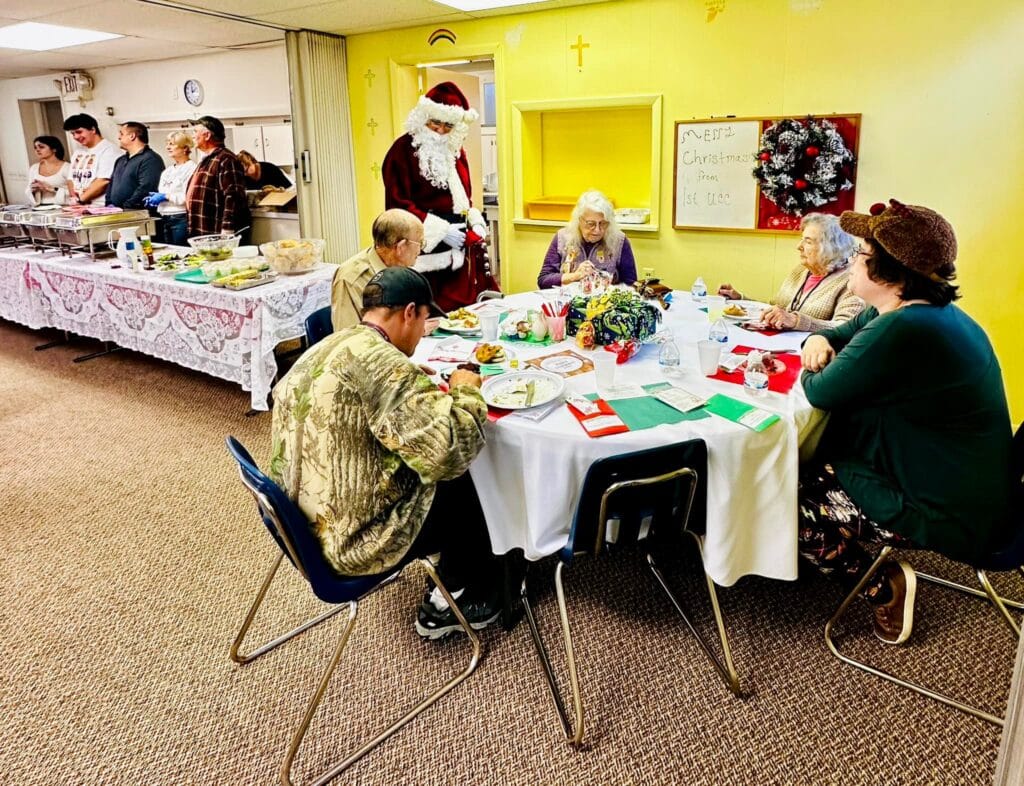United Church Funds opens a conversation around economic justice
 United Church Funds hosted a novel and unique forum to examine the intersection of racial equity and economic justice with socially responsible investing. UCF’s Midwest Regional Endowment Conference, which took place on Nov. 14 at Chicago Theological Seminary, welcomed 70 people from the wider church to explore what effects social and economic justice movements, such as Black Lives Matter and Occupy Wall Street, have on the economy.
United Church Funds hosted a novel and unique forum to examine the intersection of racial equity and economic justice with socially responsible investing. UCF’s Midwest Regional Endowment Conference, which took place on Nov. 14 at Chicago Theological Seminary, welcomed 70 people from the wider church to explore what effects social and economic justice movements, such as Black Lives Matter and Occupy Wall Street, have on the economy.
Participants were challenged to look beyond diversity and inclusion during a robust panel discussion led by Katie McCloskey, UCF director of social responsibility, and David Klassen, UCF chief investment strategist. Issuing the challenge, the Rev. Starsky Wilson, CEO & President of the Deaconess Foundation and co-chair of the Ferguson Commission, who, as part of the discussion, urged the group to aim for racial equity.
“Equity suggests that when you find that you don’t have similar outcomes among different people groups, you actually put in additional support among those people groups in order to get to the same outcomes for them,” Wilson said.
The Rev. Marilyn Pagan-Banks, executive director of A Just Harvest, echoed Wilson’s sentiment when she admitted that part of the problem is the fear around talking about privilege, and that while people have good intentions, they are often embarrassed to talk about their own wealth. Ms. Pagan Banks emphasized that it is the system — rather than individuals — that are to blame.
“I’m not trying to make you feel bad and I’m not trying to point fingers at you,” she said. “It’s a system, and unless you can see your place in that system and use the privilege you have to begin to change that system, then we’ll always be needy.”
The Rev. Christophe Ringer, assistant professor of theological ethics and society at Chicago Theological Seminary, was also on the panel, claiming, “We need the SRI community to begin to challenge corporations and establish criteria… and to integrate that into an investment strategy.”
The Rev. John Dorhauer, UCC general minister and president, provided the theological reflection to conclude the conference, in which he aimed to raise some thought-provoking questions about leveraging economic impact in fulfilling God’s mission.
“When we talk about people of privilege and people of wealth investing capital and corporate assets in places that make a difference… we talk about making clear commitments to be present where the cries are heard, and utilizing our agency and privilege to deconstruct systems that perpetuate injustices,” he shared.
Dorhauer read a passage from the closing lines of the book of Micah in the Bible, about how the vision of God ensures that all “sit unto their own vine and their own fig” without fear, he said.
“If you want to end war, or if you want to end poverty or hatred, then you must reconstruct the household so that all have enough,” Dorhauer concluded. “This is not a vision of economy where one percent of the household holds 90 percent of the vines and figs. It is a vision of economy where each has enough.”
Related News
Year in Review: Top news highlights of 2024
The United Church of Christ News team has spent each week of 2024 delivering stories that...
Read MoreNo more lonely little Christmases: Chasing away the blues now and into the New Year
With the loneliness epidemic in the U.S. continuing to affect every one in five people, many...
Read MoreUCC Annual Report video brings to life impactful ministries
Leaders of the United Church of Christ are thrilled to share the newly released 2024 Annual...
Read More


